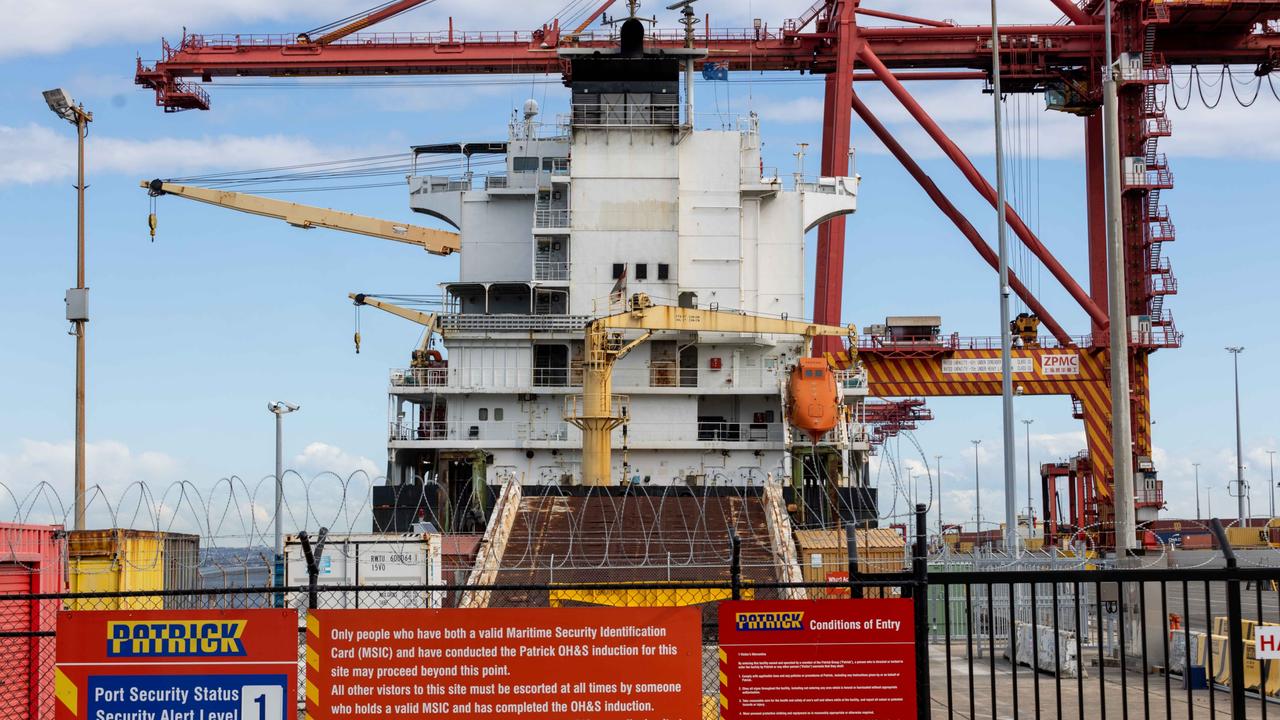Online book retailer Booktopia’s fall from bestseller to bargain basement
The online book retailer that listed less than four years ago at a valuation north of $300m is now on life support, with its shares currently suspended from trade.

Booktopia, the online book retailer that listed less than four years ago at a valuation north of $300m, is now on life support, with its shares currently suspended from trade.
The 20-year old company, founded by former managing director Tony Nash, Simon Nash and Steven Traurig, had just $212,000 in cash at the end of the March quarter, with its shares changing hands for 4.5c before they were halted from trade just over a week ago.
It’s a far cry from the $2.30 per share listing price in December 2020, and the levels around $3 per share it reached about a year later.
The shares are now suspended, after initially being placed in a trading halt on June 13 while the company finalised what it flagged as a “material announcement’’ about the outcomes of a strategic review announced in February, and its progress in seeking additional funding.
The most recent announcement to the ASX requested a voluntary suspension of the shares “as the outcomes from the strategic review including the seeking of additional funding have not progressed to the extent where it is capable of making an announcement’’.
Booktopia had high hopes when it listed in 2020, and in its inaugural first half trading announcement in early 2021 trumpeted the strongest December performance in its 16-year history.
Revenue for the half was up 52 per cent to $113m and pre-tax earnings were up 506 per cent, adjusted for listing costs, to $8m.
“We are confident the momentum and growth we experienced in 2020 should continue throughout the year and beyond and as a result the business is on track to meet forecasts provided in the company’s prospectus,’’ Tony Nash said at the time.
The company’s prospectus tells the story of a company started with a marketing budget of just $10, which took three days to sell its first book.
It grew over time to be selling a book every 4.7 seconds, with a 14,000 sq m headquarters in Lidcombe in western Sydney.
Booktopia’s compound annual revenue growth rate over the five financial years to mid-2020 was about 26.4 per cent, and the company was regularly lauded as one of the nation’s fastest growing tech outfits.
The company had just 6 per cent of the Australian book market at the time, giving it headroom to grow, and the approaching pandemic could only boost book sales, the theory went.
The owners only gave up 13.7 per cent of the company to new shareholders, with the founding trio owning more than 40 per cent of the company on listing. Ellerston Capital was also a top-20 shareholder at the time.
Things got off to a good start.
Booktopia reported total revenue of $223.9m for the full year in August 2021, a 35 per cent increase on the previous year and 10 per cent above the $204.5m forecast in the company’s prospectus.
A loss was booked, however that was impacted by listing costs.

By May 2022 however, Tony Nash announced his resignation, after a trading update that showed a collapse in earnings and a forecast for a full-year loss.
“Booktopia co-founder and CEO Tony Nash has informed the board of his intention to step aside from the role of CEO. He will continue as a full-time senior executive and director with the company in a new position focused exclusively on growth,” the company said in an statement at the time.
“The trading environment for e-commerce companies remains volatile and unpredictable. “Online book sales were a major beneficiary of lockdowns and other restrictions, but as the economy returns to normal, the growth in online books sales has moderated.
“While pandemic-level sales growth has receded, there are still positive signs, and the company expects online book sales as a market segment to continue to grow in the high single digits.”
Mr Nash was given a firmer shove out the door just a couple of months later, giving up his executive role while staying on as a director and shareholder.
In September that year the company’s four independent directors including the chairman Chris Beare quit, after Mr Nash called for an extraordinary general meeting in a bid to force Mr Beare and other directors out.
Peter George was installed as chairman, with former Amazon executive David Neinke as chief executive, having replaced Mr Nash earlier in the year.
In early 2023 Booktopia cut 10-15 per cent of its staff – about 40 roles – in a bid to deliver $12m-$15m in earnings improvements, which Mr George called a “disappointing but necessary step in these economic times’’.
Booktopia shares had already slumped to just 27.5c.
A $6m fine from the ACCC, for “making false or misleading representations on its website, and in dealings with consumers, about consumer guarantee rights’’ in relation to refunds didn’t help matters.
The company reported a net loss of $29m in 2022-23, with revenue falling 18 per cent to $197.6m.
Mr Neinke told the market: “We believe we have all the building blocks in place to return the business back to profitability and growth.”
The company had a new customer fulfilment centre up and running, and had cut costs on lease obligations among other cost-saving initiatives.
Things only got worse, however.
In February this year the company announced a profit guidance downgrade from expected full year EBITDA of $13.5m to just $1m-$3m.
It also announced a strategic review “to explore all options to accelerate a return to acceptable earnings’’.
And the new fulfilment centre was not working out as planned.
“The company also incurred some temporary challenges with the transition into the CFC,’’ Booktopia said.
“The transition and its associated challenges had an adverse effect on sales revenue during the first half where: there was a decrease in the volume of inventory Booktopia was able to hold, with many products out of stock for extended periods; and the customer promise was also compromised, with longer delivery times for customers.’’
The half-year report to the end of last December showed a revenue fall of 21.1 per cent to $86.3m, and a net loss of $16.7m.
The company’s net assets were negative to the tune of $20.9m, and the auditor flagged a material uncertainty relating to its ability to continue as a going concern.
In early June, Booktopia announced the results of its strategic review, with Mr Neinke resigning with immediate effect.
Mr George assumed the role of executive chairman while Tony Nash came back on board as an executive director overseeing sales.
All of the board also agreed to be paid in nil-priced options rather than cash to help shore up the company’s balance sheet.
Another 50 roles were also to be cut, and Booktopia withdrew its guidance entirely. Chief financial officer Fiona Levens had also quit in May.
All was quiet until the company went into the most recent trading halt on June 13, from which it is yet to emerge.






